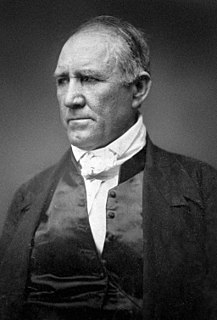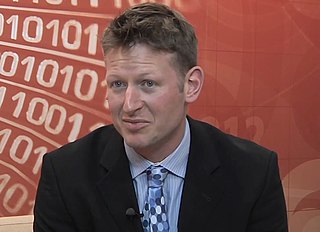A Quote by Noam Chomsky
What the public wants is called 'politically unrealistic.' Translated into English, that means power and privilege are opposed to it.
Quote Topics
Related Quotes
I have ever been opposed to banks, - opposed to internal improvements by the general government, - opposed to distribution of public lands among the states, - opposed to taking the power from the hands of the people, - opposed to special monopolies, - opposed to a protective tariff, - opposed to a latitudinal construction of the constitution, - opposed to slavery agitation and disunion. This is my democracy. Point to a single act of my public career not in keeping with these principles.
In fact, many of the quotes in my books are quotes which were translated from English and that I read already translated into Spanish. I'm not really concerned with what the original version in English was, because the important thing for me is that I received them already translated, and they've influenced my original worldview as translations, not as original quotations.
There was - there still is - a big shortage of good Chinese-English literary translators. So for two years in London, I was stuck waiting, not writing, with several Chinese books I couldn't get translated. That's when I decided to write in English, since I had been living here and had decided to reconstruct my life here. Even if I wrote in broken English, it was better than getting bored and weary and bitter on the long queue of authors waiting to be translated by a stranger.
There are certain concepts, which exist in English, and are unthinkable, untranslatable into Hebrew and vice versa. Hebrew has a system of tenses, which is, in a big way, different from the English system of tenses, probably different than any European system of tenses, which means a different sense of reality, which means a different concept of time. So, things can be translated, but they become different.
I am sure that the two main forms of English, American English and British English, separated geographically from the beginning and severed politically since 1776, are continuing to move apart, and that existing elements of linguistic dissimilarity between them will intensify as time goes on, notwithstanding the power of the cinema, TV, Time Magazine, and other two-way gluing and fuelling devices.
Living in Portland, which is a predominantly white city, the privilege and the luxury to be able to obsess over a certain kind of minutia, that I think, if you did not have that privilege, would never be bothersome. When people are worried about whether "local" means 100 miles, or 50 miles, or 10 miles from a grocery store, I just think, "Wow. What a privilege it is to have that as a major concern in your life." As opposed to, "Can we afford food tonight?" Sometimes I'm just shocked at what becomes concerning in these kind of communities.





































